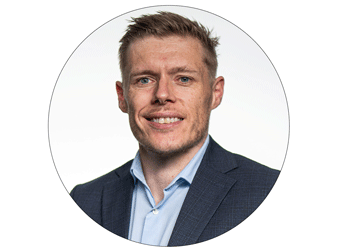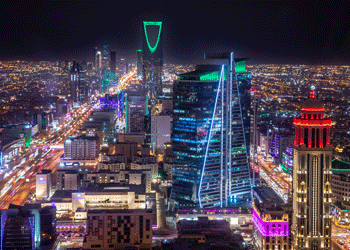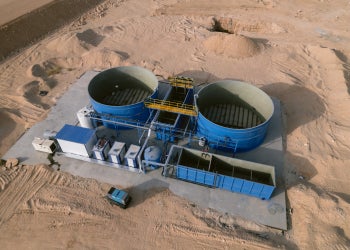How family businesses can create a meaningful future
30 September 2022
 Family businesses have been at the forefront of change in the UAE for generations, thanks to their commitment to the vision outlined by the nation’s leadership.
Family businesses have been at the forefront of change in the UAE for generations, thanks to their commitment to the vision outlined by the nation’s leadership.
Historically a driving force for advancement, they remain a staple component of the UAE’s commercial ecosystem today: synonymous with trust and recognised for their vital role in driving job creation and economic growth.
The Covid-19 pandemic resulted in some 70 per cent of business leaders in the UAE forming a stronger connection to their purpose, according to a November 2020 KPMG report entitled A different service for a new reality.
In an era of global uncertainty, purpose is the North star, defining why a business exists and guiding family businesses as they move to transform and innovate in order to stay relevant and competitive – both now and in the future.
Further, consumers, employees and shareholders alike are increasingly paying attention to how companies go about their business: from operating models and treatment of their people to the values they display.
Alignment of corporate and personal purpose is now imperative across all stakeholder groups, and future success for family businesses will depend as much upon being recognised for their social contribution as their commercial leadership.
Aspirational view
For some, this will mean a seismic shift in mindset, which must be borne out of strategic intent. To make this shift, a clear and articulate vision of the future is a valuable, and indeed essential, tool.
If purpose is the North star, providing direction, a vision paints the picture of the future; it is an aspirational view of the destination along the way. For every stakeholder touchpoint, a vision brings alignment, structure and clarity, especially during times of unprecedented change.
Al-Ghurair Investment has built a 60-year history founded on its pivotal role in the country’s evolution and for making bold moves with a progressive mindset. Today, we embrace that legacy into the core of who we are, and look to our next chapter, launching an all-new vision that incorporates our history and our future: ‘Pioneers in the pursuit of better to enhance life, every day’.
Pioneering passion
The UAE’s ongoing transformation has ushered in a new era of opportunities for family businesses, energising us to always stay one step ahead of the times.
That means embracing change as a constant and being agile in our ability to adapt and respond to market trends and movements.
Our transformation journey emphasises innovation, driving us to make bold moves that disrupt – thereby consistently raising the benchmark and expanding consumer choice.
From a legacy built upon groundbreaking moments: establishing the first flour mill, the first canola seed crushing plant, the first cement company and being first-to-market with a multi-use mall, we retain our pioneering spirit and have bold intentions to add many more firsts to our future story.
Future success will depend as much upon being recognised for their social contribution as their commercial leadership
John Iossifidis, Al-Ghurair Investment
Pursuing better for all
To remain at the forefront of development, family businesses need to continuously up their game to become better for customers, employees, shareholders and society.
Customer priorities and behaviours are shifting, and brand loyalties are continuously being tested. In a recent customer intelligence report, four out of five UAE consumers have switched brands at least once in the past year.
There are growing expectations around improving customer experiences. Managing digital touchpoints, customer insights and data analysis are critical. It is encouraging to see family businesses in the region treating digitalisation as a top strategic priority going forward, with cost reduction no longer the primary driving force.
The focus should be on shaping customer journeys that resolve pain points and build moments that not only satisfy but delight.
Finally, for every business decision made, family businesses need to keep an eye on the country’s future, investing in sectors that drive local economic development and social advancement for generations to come.
Through our partnership with the Abdulla al-Ghurair Foundation for Education, we invest in and enable the development of Emirati and Arab youth, building better livelihoods through education. Furthermore, conscious mindfulness towards sustainability is an increasing imperative – focusing on circularity, waste reduction and managing carbon footprints.
Enhancing life, every day
From the beginning, we pledged to enhance life in the community by entering sectors that are core to customer needs, that advance society and make a meaningful contribution. All our efforts are guided towards facilitating the ‘ecosystem of life’ – feeding people, housing people, educating people or bringing communities together.
Achieving sustainable change is not just about big, symbolic efforts, but the smaller moments, where our daily actions can make a genuine difference.
We believe family businesses need to build a culture around pursuing ‘being better’ every day, whether through how they serve their customers or how efficiencies are built into internal processes.
We ask ourselves every day at Al-Ghurair: “What can we do better today?” as this is how we can fulfil our larger purpose and vision for the UAE.
In doing so, we seek to collectively lead the business into a new era of growth: becoming more progressive, people-oriented, value-driven and guided by a focus on sustainable excellence – all while creating value for all our stakeholders.
The Al-Ghurair family is woven into the fabric of the country’s rich heritage and economic growth. I believe there is much to be excited about when I look towards the future of the UAE and our organisation’s role within it.

Exclusive from Meed
-
 Solar deals signal Saudi Arabia’s energy ambitions
Solar deals signal Saudi Arabia’s energy ambitions13 February 2026
-
 Saudi Arabia appoints new investment minister
Saudi Arabia appoints new investment minister13 February 2026
-
 Indian firm wins major Oman substation contract
Indian firm wins major Oman substation contract12 February 2026
-
 Developers appoint contractor for $500m wastewater treatment project
Developers appoint contractor for $500m wastewater treatment project12 February 2026
-
 Dewa raises Empower stake in $1.41bn deal
Dewa raises Empower stake in $1.41bn deal12 February 2026
All of this is only 1% of what MEED.com has to offer
Subscribe now and unlock all the 153,671 articles on MEED.com
- All the latest news, data, and market intelligence across MENA at your fingerprints
- First-hand updates and inside information on projects, clients and competitors that matter to you
- 20 years' archive of information, data, and news for you to access at your convenience
- Strategize to succeed and minimise risks with timely analysis of current and future market trends

Related Articles
-
 Solar deals signal Saudi Arabia’s energy ambitions
Solar deals signal Saudi Arabia’s energy ambitions13 February 2026
 Commentary
Commentary
Mark Dowdall
Power & water editorSaudi Arabia’s recent agreement to build $2bn-worth of solar power plants in Turkiye is the latest sign that the kingdom’s energy influence is changing.
Historically, this was measured in oil barrels and export volumes. Increasingly, this is extending to capital, structuring expertise and the ability to deliver record-low tariffs in competitive markets.
Announcing the deal, Turkish Energy Minister Alparslan Bayraktar said tariffs for the plants would be the country’s lowest on record, with electricity purchased under 25-year power purchase agreements.
It followed another announcement, in January, that Acwa is investing $200m to build a large-scale solar photovoltaic (PV) plant in the Philippines.
Whether Saudi-backed companies ultimately retain long-term stakes or primarily develop and build the assets, their role at the front end is significant.
Sponsors that bring sovereign backing, clear procurement processes and access to low-cost financing can influence tariffs and contract terms from the outset.
There is also a geopolitical layer. Investing in Turkiye, or anywhere for that matter, strengthens political and economic ties at a time when regional alignments are shifting.
Energy infrastructure is also long-term by its nature. It connects ministries, regulators, lenders and operators in relationships that often extend well beyond a single transaction.
Saudi Arabia has spent the past few years refining its approach to pricing, structuring and financing large-scale renewables at home.
Exporting that expertise may not rival oil in scale or visibility, but it does signal that Saudi Arabia is becoming more than just an energy supplier.
Increasingly, it is becoming a participant in how other countries design and finance their energy transitions. That influence is still significant.
https://image.digitalinsightresearch.in/uploads/NewsArticle/15645903/main.jpg -
 Saudi Arabia appoints new investment minister
Saudi Arabia appoints new investment minister13 February 2026
Register for MEED’s 14-day trial access
King Salman Bin Abdulaziz Al-Saud has made a series of senior government changes, including Khalid Al-Falih leaving his role as investment minister to become minister of state and a member of the cabinet.
Al-Falih has been replaced by Fahad Al-Saif as investment minister. Al-Saif has been head of the Investment Strategy and Economic Insights Division at the Public Investment Fund (PIF) since 2024. That role involved formulating PIF’s long-term investment strategy. He has also served as head of the Global Capital Finance Division, a role he has held since joining PIF in 2021.
The change of investment minister comes at a time when securing investments has become a key priority for Saudi Arabia as it prepares to hand over more projects to the private sector for delivery.
King Salman also named Abdullah Al-Maghlouth as vice-minister of media and Abdulmohsen Al-Mazyad as vice-minister of tourism. Khalid Al-Yousef was named attorney general, and Sheikh Ali Al-Ahaideb will serve as president of the Board of Grievances.
Faihan Al-Sahli was selected as director general of the General Directorate of Investigation, while Abdulaziz Al-Arifi was chosen to lead the National Development Fund. Haytham Al-Ohali will head the Communications, Space and Technology Commission, and Fawaz Al-Sahli will chair the Transport General Authority.
https://image.digitalinsightresearch.in/uploads/NewsArticle/15645415/main.gif -
 Indian firm wins major Oman substation contract
Indian firm wins major Oman substation contract12 February 2026

India’s Larsen & Toubro has won a contract to build the Majan 400/220/132kV grid station in Oman.
Estimated to cost $100m, the project includes an associated 400kV line-in line-out underground cable from Sohar Free Zone to the Sohar Interconnector Station.
The contract was awarded by Oman Electricity Transmission Company (OETC), part of the government-owned Nama Group.
The grid station will comprise eight 400kV gas-insulated switchgear (GIS) bays, eight 220kV GIS bays and 10 132kV GIS bays at the new Sohar Free Zone substation.
The scope includes the installation of two 500MVA, 400/220kV transformers and two 500MVA, 220/132kV transformers.
Local firm Monenco Consulting Engineers was appointed in April last year to provide design and supervision services for the project.
As MEED exclusively revealed, the main contract was tendered in June, as part of three significant contracts to build new substations in the sultanate.
The second contract, worth about $35m, covers the construction of the Sultan Haitham City 132/33kV grid station and associated 132kV line-in line-out underground cables running 4 kilometres from Mabella to Mabella Industrial Zone.
The third contract, valued at about $100m, covers the construction of the Surab 400/33kV grid station and an associated 400kV line-in line-out cable from the Duqm grid station to the Mahout grid station.
Local firms Muscat Engineering Consulting and Hamed Engineering Services are consultants for the Sultan Haitham City and Surab projects, respectively.
The two remaining contracts are currently under bid evaluation, with awards expected this quarter.
https://image.digitalinsightresearch.in/uploads/NewsArticle/15638107/main.jpg -
 Developers appoint contractor for $500m wastewater treatment project
Developers appoint contractor for $500m wastewater treatment project12 February 2026

Register for MEED’s 14-day trial access
Egypt’s Orascom Construction has won the engineering, procurement and construction (EPC) contract for a major wastewater treatment project in Saudi Arabia’s Eastern Province.
A consortium of Saudi utilities provider Marafiq, the regional business of France’s Veolia and Bahrain/Saudi Arabia-based Lamar Holding is developing the $500m (SR1.875bn) industrial wastewater treatment plant (IWWTP) in Jubail Industrial City 2.
Sources close to the project confirmed the appointment to MEED, adding that the project has now entered the construction phase.
Industry sources also said that financial close on the project is expected to be reached in the coming days.
In September, the developer consortium was awarded a contract, under a 30-year concession agreement, by Saudi Aramco Total Refining & Petrochemical Company (Satorp), a joint venture of Saudi Aramco and France’s TotalEnergies.
The planned facility will treat and recycle wastewater from Satorp’s under-construction Amiral chemical derivatives complex, also in Jubail.
Marafiq, formally Power & Water Utility Company for Jubail and Yanbu, will own a 40% stake in the dedicated project company. Veolia Middle East SAS will hold a 35% stake, and Lamar Holding’s Lamar Arabia for Energy will hold the other 25%.
The planned IWWTP, which will primarily serve the $11bn sprawling Amiral chemicals zone, will implement advanced water treatment and recovery technologies to process complex industrial effluents, including spent caustic streams. Treated water will be reintegrated into the industrial processes, supporting closed-loop reuse and energy efficiency.
The project follows a concession-style model, akin to a public-private partnership (PPP), where the developer consortium invests in, builds and operates the wastewater plant over a 30-year period, with returns linked to service delivery.
Marafiq has been involved in several similar projects across Saudi Arabia, including as the sole owner of the Jubail industrial water treatment plant (IWTP8), which treats complex industrial effluents for petrochemical and heavy industrial companies.
In 2020, Saudi Services for Electro Mechanic Works was awarded the $202m main contract for the fourth expansion phase of IWTP8. Construction works on the project are expected to be completed by the end of the quarter.
 READ THE FEBRUARY 2026 MEED BUSINESS REVIEW – click here to view PDF
READ THE FEBRUARY 2026 MEED BUSINESS REVIEW – click here to view PDFSpending on oil and gas production surges; Doha’s efforts support extraordinary growth in 2026; Water sector regains momentum in 2025.
Distributed to senior decision-makers in the region and around the world, the February 2026 edition of MEED Business Review includes:
> AGENDA: Mena upstream spending set to soar> INDUSTRY REPORT: MEED's GCC water developer ranking> INDUSTRY REPORT: Pipeline boom lifts Mena water awards> MARKET FOCUS: Qatar’s strategy falls into place> CURRENT AFFAIRS: Iran protests elevate regional uncertainty> CONTRACT AWARDS: Contract awards decline in 2025> LEADERSHIP: Tomorrow’s communities must heal us, not just house us> INTERVIEW: AtkinsRealis on building faster> LEADERSHIP: Energy security starts with rethinking wasteTo see previous issues of MEED Business Review, please click herehttps://image.digitalinsightresearch.in/uploads/NewsArticle/15637523/main.jpg -
 Dewa raises Empower stake in $1.41bn deal
Dewa raises Empower stake in $1.41bn deal12 February 2026
Dubai Electricity & Water Authority (Dewa) has announced it has increased its stake in Emirates Central Cooling Systems Corporation (Empower) from 56% to 80%.
The transaction was completed through the purchase of 2.4 billion shares and the transfer of the entire ownership of Emirates Power Investment (EPI), which is wholly owned by Dubai Holding.
The total value of the deal is AED5.184bn ($1.41bn).
Empower currently holds over 80% of Dubai’s district cooling market and operates 88 district cooling plants across the emirate.
According to MEED Projects, the UAE’s district cooling sector currently has nine projects worth $1.29bn in the pre-execution phase.
Empower has ownership in four of these projects, which have a combined value of $472m.
This includes a $200 million district cooling plant at Dubai Science Park, with a total capacity of 47,000 refrigeration tonnes serving 80 buildings.
Empower signed a contract to design the plant last August, with construction scheduled to begin by the end of the first quarter of 2026.
The utility is also building a district cooling plant at Dubai Internet City.
UAE-based TMF Euro Foundations was recently appointed as the enabling and piling subcontractor for the project.
https://image.digitalinsightresearch.in/uploads/NewsArticle/15635949/main.jpg


